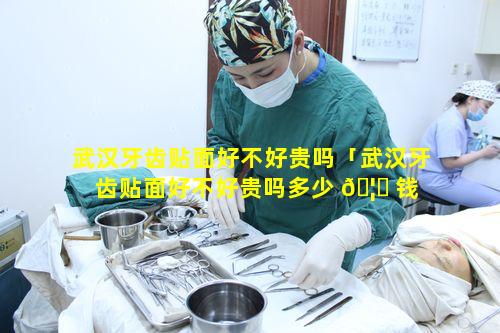如何成为一名整形咨询师
1、如何成为一名整形咨询师
成为一名整形咨询师通常需要以下几个步骤:
1. 教育背景:你需要有一定的医学或相关领域的教育背景。这通常意味着你需要完成相关的本科或研究生课程,如医学、护理、生物学、心理学等。
2. 专业知识:整形咨询师需要对整形手术、非手术美容程序、皮肤护理、美容产品等有深入的了解。你可以通过参加专业培训课程、研讨会、工作坊等方式来增加你的专业知识。
3. 实践经验:理论知识是基础,但实践经验同样重要。你可以通过实习、工作或志愿者服务等方式在整形外科诊所、美容院、医院等环境中积累实践经验。
4. 沟通技巧:整形咨询师需要与患者进行有效沟通,了解他们的需求和期望,解释手术过程和可能的风险,以及提供术后护理建议。因此,良好的沟通技巧和人际交往能力是必不可少的。
5. 获得认证:在一些国家和地区,整形咨询师可能需要获得专业认证或执照。你可以查询当地的医疗美容协会或相关机构,了解具体的认证要求和流程。
6. 持续学习:医学和美容行业不断发展,新的技术和产品层出不穷。作为一名整形咨询师,你需要保持对行业动态的关注,并不断学习和更新你的知识。
7. 建立网络:建立和维护专业网络可以帮助你了解行业动态,寻找工作机会,甚至可能帮助你获得推荐客户。
请注意,不同国家和地区对于整形咨询师的要求可能有所不同,因此在追求这一职业道路时,务必了解并遵守当地的法律法规。
2、如何成为一名整形咨询师心得体会
成为一名整形咨询师需要具备一定的专业知识、沟通技巧和职业素养。以下是一些心得体会,可以帮助你更好地成为一名整形咨询师:
1. 专业知识:- 学习整形美容相关的医学知识,包括解剖学、生理学、皮肤病学等。
- 了解各种整形手术的原理、适应症、禁忌症、手术流程和可能的风险。
- 持续关注行业动态,学习最新的整形技术和趋势。
2. 沟通技巧:- 培养良好的倾听能力,能够耐心听取客户的需求和担忧。
- 清晰、准确地传达信息,帮助客户理解整形手术的过程和预期效果。
- 具备同理心,能够站在客户的角度考虑问题,提供个性化的建议。
3. 职业素养:- 保持诚信,不夸大手术效果,不隐瞒风险。
- 尊重客户的隐私,保护客户信息安全。
- 遵守医疗伦理,不进行不必要的手术推荐。
4. 客户服务:- 提供专业的咨询服务,帮助客户做出明智的决定。
- 在手术前后提供必要的关怀和支持,确保客户满意度。
- 处理客户投诉和疑问,及时解决问题。
5. 自我提升:- 参加专业培训和研讨会,不断提升自己的专业水平。
- 学习心理学知识,更好地理解客户的心理需求。
- 建立良好的职业网络,与同行交流经验。
6. 案例分析:- 分析成功和失败的案例,经验教训。
- 学习如何根据不同的客户情况提供定制化的解决方案。
7. 法律法规:- 熟悉相关的法律法规,确保咨询服务合法合规。
- 了解医疗纠纷的处理流程,预防和减少医疗事故。
成为一名优秀的整形咨询师不仅需要专业知识,还需要不断学习和实践,提升自己的综合能力。通过上述心得体会,你可以逐步成长为一名受客户信赖和尊敬的整形咨询师。

3、想做整形咨询师,要从哪里入手呢
如果你想成为一名整形咨询师,以下是一些步骤和建议,可以帮助你入手:
1. 了解行业:- 研究整形美容行业的基本知识,包括不同的整形手术、非手术美容程序、行业趋势、安全标准和法规。
- 了解整形手术的风险和可能的并发症。
2. 教育背景:- 虽然整形咨询师不一定需要医学学位,但相关的教育背景会很有帮助。你可以考虑学习美容学、护理、心理学或相关领域的课程。
- 一些专业机构可能提供整形咨询师的认证课程。
3. 获取经验:- 在整形诊所、美容院或相关医疗机构实习或工作,以获得实际经验。
- 与整形外科医生和其他医疗专业人员合作,了解他们的工作流程和患者需求。
4. 专业培训:- 参加整形咨询师的专业培训课程,这些课程通常会教授如何与患者沟通、如何解释手术过程和结果、以及如何处理咨询过程中的各种情况。
- 获取相关的认证,这可能会提高你的专业信誉和就业机会。
5. 沟通技巧:- 发展强大的沟通和人际交往能力,这对于理解患者的需求、提供咨询和建立信任至关重要。
- 学习如何有效地解释复杂的医疗信息,使其对非专业人士来说易于理解。
6. 持续学习:- 整形美容行业不断发展,新的技术和治疗方法不断出现。因此,持续学习和更新知识是非常重要的。
- 参加行业会议、研讨会和继续教育课程,以保持专业知识的最新状态。
7. 建立网络:- 与行业内的专业人士建立联系,包括整形外科医生、护士、其他咨询师和行业领导者。
- 加入专业组织,如国际整形美容外科协会(ISAPS)或当地的美容医学协会,以扩大你的专业网络。
8. 职业规划:- 确定你的职业目标,并制定实现这些目标的计划。
- 考虑是否想要在特定的整形领域(如面部整形、身体轮廓塑造等)专精。
9. 了解法律和伦理:- 熟悉与整形美容相关的法律和伦理标准,确保你的咨询实践符合这些标准。
10. 个人品牌建设:- 建立个人品牌,通过社交媒体、博客或专业网站展示你的专业知识和经验。
- 提供高质量的客户服务,以建立良好的口碑和推荐网络。
成为一名成功的整形咨询师需要时间、努力和专业知识的积累。通过上述步骤,你可以逐步建立起你的职业生涯,并为患者提供专业的咨询服务。
4、如何成为一名整形咨询师英语作文
Title: How to Become a Cosmetic Surgery Consultant
Becoming a cosmetic surgery consultant is a rewarding career path for those who are passionate about beauty and healthcare. This profession requires a blend of medical knowledge, customer service skills, and an understanding of aesthetic preferences. Here are the steps to guide you on your journey to becoming a successful cosmetic surgery consultant.
1. Educational Foundation: Start by obtaining a solid educational background. A degree in nursing, healthcare administration, or a related field is beneficial. Courses in anatomy, physiology, and psychology will provide a strong foundation for understanding the human body and patient care.
2. Medical Knowledge: Gain a comprehensive understanding of cosmetic procedures, including surgical and non-surgical options. This knowledge can be acquired through formal education, attending workshops, and continuous professional development.
3. Certification: Consider obtaining certification from a recognized institution. Certifications such as Certified Aesthetic Consultant (CAC) or similar credentials can enhance your credibility and demonstrate your expertise in the field.
4. Hands-On Experience: Seek opportunities to work in a medical or cosmetic surgery setting. This could be through internships, volunteering, or entry-level positions. Practical experience will help you understand the industry and develop essential skills.
5. Communication Skills: Develop excellent communication skills. As a consultant, you will need to explain complex procedures to clients in an understandable way. Additionally, you must be able to listen to clients' needs and concerns.
6. Customer Service: Learn the art of customer service. A cosmetic surgery consultant must be able to build rapport with clients, manage expectations, and provide a positive experience.
7. Networking: Build a professional network within the cosmetic surgery community. Attend conferences, join professional organizations, and connect with surgeons and other consultants. Networking can lead to job opportunities and valuable industry insights.
8. Marketing Skills: Acquire basic marketing skills to promote services and attract clients. Understanding how to market cosmetic procedures effectively is crucial for a consultant's success.
9. Ethical Considerations: Be aware of the ethical considerations in cosmetic surgery. A consultant must ensure that clients are making informed decisions and that their expectations are realistic.
10. Continuous Learning: Stay updated with the latest trends and advancements in cosmetic surgery. This can be achieved through reading industry publications, attending seminars, and participating in continuing education courses.
In conclusion, becoming a cosmetic surgery consultant is a multifaceted process that requires a combination of education, experience, and interpersonal skills. By following these steps and committing to ongoing professional development, you can establish a successful career in this dynamic field.




